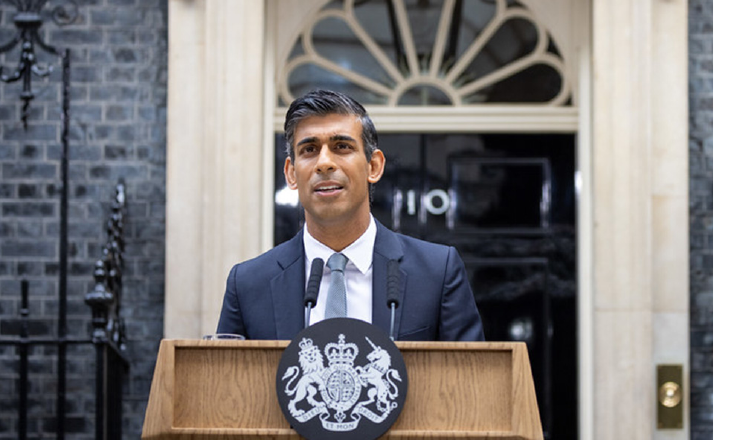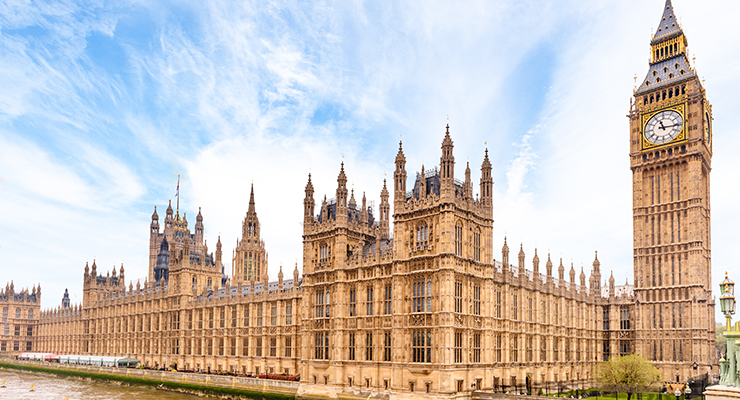
Government rows back on measures to reach net zero
The Prime Minister has delayed and softened measures intended to support the UK reach its 2050 net-zero carbon goal. Rishi Sunak said the UK is still committed its targets but cited ‘unacceptable costs on hard-pressed British families’, and pushed back and watered down some of its planned measures and the deadlines to which the industry had been working.
He said homeowners will have more time to transition to heat pumps – and that not everyone would have to do so. “We’ll never force anyone to rip out their existing boiler and replace it with a heat pump,” he said. “You’ll only ever have to make the switch when you’re replacing your boiler anyway, and even then, not until 2035.
“And to help those households for whom this will be hardest, I’m introducing a new exemption today so that they’ll never have to switch at all.”
Alongside this, the Boiler Upgrade Scheme, which provides grants to people upgrading their fossil fuel boiler to a low-carbon heating system, rises immediately to £7,500 from £5,000.
Under the revised plans, the government says it will:
- Delay the ban on installing oil and LPG boilers, and new coal heating, for off-gas-grid homes to 2035, instead of phasing them out from 2026. Many of these homes are not suitable for heat pumps, so this ensures homeowners are not having to spend around £10-15,000 on upgrading their homes in just three years’ time.
- Set an exemption to the phase-out of fossil fuel boilers, including gas, in 2035, so that households who will most struggle to make the switch to heat pumps or other low-carbon alternatives won’t have to do so. This is expected to cover about one-fifth of homes, including off-gas-grid homes – those that will need expensive retrofitting or a very large electricity connection.
- Scrap policies to force landlords to upgrade the energy efficiency of their properties, but instead continue to encourage households to do so where they can.
- Move back the ban on the sale of new petrol and diesel cars by five years, so all sales of new cars from 2035 will be zero emission.
The Climate Change Committee’s chair Piers Forster said: “[The] announcement is likely to take the UK further away from being able to meet its legal commitments. This, coupled with the recent unsuccessful offshore wind auction, gives us concern.
“More action is needed and we await the government’s new plan for meeting their targets and look forward to receiving their response to our Progress Report, expected at the end of October.”
Vaillant Group UK & Ireland managing director Henrik Hansen said: “Our experience from some European countries with more established heat pump markets has shown that stronger subsidies and the benefit of lower running costs can speed up the consumer adoption of the technology.
“The announcement today of the increase of the Boiler Upgrade Scheme to £7,500 will be welcome news to homeowners in England and Wales considering making the switch.
“We await more detail from the announcement… on the overall budget for the Boiler Upgrade Scheme. If the overall budget is not increased, the number of homeowners able to access the grant will be limited to 20,000 per annum which represents less than 0.1 per cent of the housing stock in the UK, potentially slowing down the transition to heat pumps.
“We believe that significant investment into consumer education is needed, together with a rebalancing of gas and electricity prices to make the potential benefits of installing and running a heat pump more attractive to the homeowner.”
George Webb, CEO of Liquid Gas UK, the trade association for the LPG and bioLPG industry, says: “Moving the phase-out date to 2035 brings welcome parity between off-grid and on-grid households. The 2026 off-grid fossil fuel boiler ban would have seen many in our rural communities having to spend tens of thousands of pounds on electric heating systems for hard-to-treat homes, where they would have been unsuitable.
“The new pragmatic approach now taken by government is welcome. We look forward to working with government on adopting a mixed-technology approach to off-grid heating. The LPG industry has a credible pathway to be 100 per cent renewable by 2040, enabling consumers to use renewable liquid gases in their current heating systems, and negate the need for a costly retrofit and installation for those hard-to-treat properties, while still seeing significant carbon reductions of up to 90 per cent, compared to fossil LPG.
“For those of off-grid consumers who won’t have to or can’t install a heat pump, they can still make a significant contribution to net zero by switching to renewable liquid gases. We look forward to working with government on the development and deployment of renewable liquid gases at scale.”
Henk van den Berg, residential sales manager at Daikin UK, said: “By increasing the Boiler Upgrade Scheme support to £7,500, the Government has made renewable heating more accessible. However, the overall funding hasn’t been increased which means that there will be fewer installations overall for the remainder of the BUS scheme.
“Continuing to exclude hybrid heat pump systems – the cheapest and fastest way to decarbonise home heating – from the scheme is a real misstep.
“Moving back the deadline for banning oil/LPG boilers till 2035 and the full cancellation of the landlord’s efficiency targets will have a severe impact in the mid term. This is only going to make hitting the 2050 net zero target harder and, most likely, more expensive for households.
“The government has clearly given-up on its commitment to see up to 600,000 heap pumps being installed a year by 2028. This is going to undermine confidence, foreign investments and will have a significant impact on the growth in green jobs.”
The government says the Chancellor and Energy Security Secretary will bring forward comprehensive new reforms in due course.


